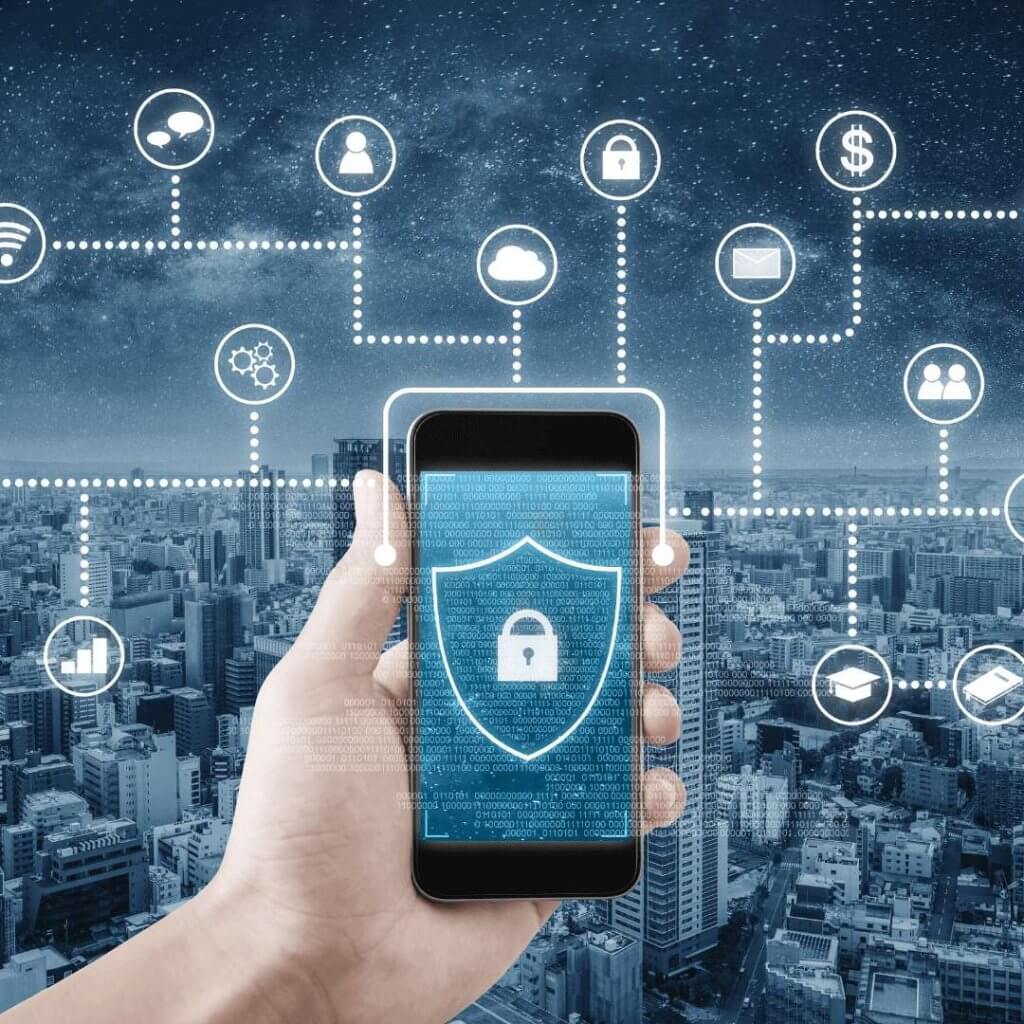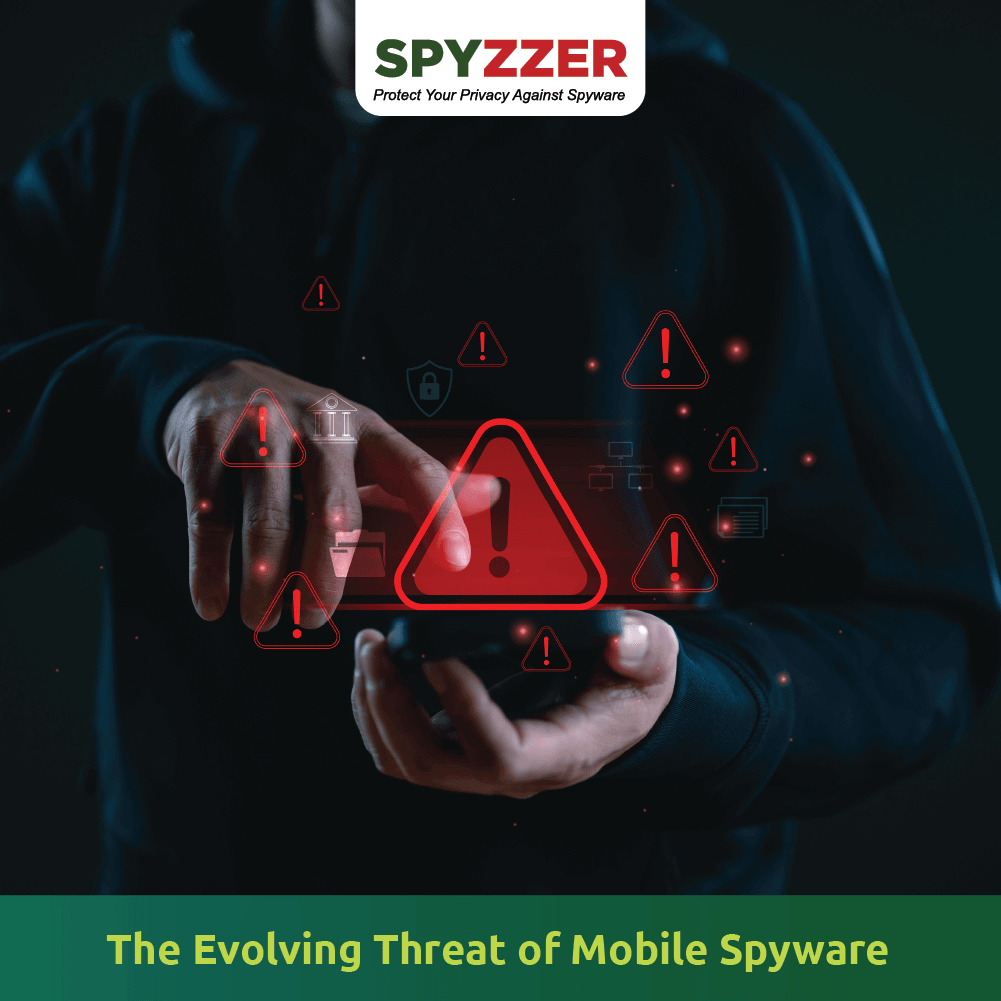Articles
Mobile phone users worldwide encounter over 9.5 Million spyware attacks.
Over 45 countries are infected by mobile spywares

Mobile spyware can significantly impact businesses and the broader economy.
Mobile spyware can significantly impact both businesses and the broader economy in various ways. Here are the key aspects of how mobile spyware affects businesses and the economy:
Impact on Businesses
Data Breaches and Loss of Confidential Information:
Confidential Data Theft: Mobile spyware can steal sensitive business information, including intellectual property, trade secrets, financial data, and customer information. This can lead to competitive disadvantages and loss of business opportunities.
Financial Loss: Data breaches often result in direct financial losses due to theft of funds, ransom payments, or fines and legal fees from non-compliance with data protection regulations.
Reputation Damage:
Customer Trust: When a business suffers a data breach, it can lose the trust of its customers, leading to decreased customer loyalty and potential loss of business.
Brand Image: Repeated security incidents can tarnish a company’s brand image, making it difficult to attract new customers and retain existing ones.
Operational Disruptions:
Business Interruption: Spyware can cause disruptions in business operations by compromising key systems, leading to downtime and loss of productivity.
Resource Diversion: Companies often need to divert significant resources to deal with the aftermath of a spyware attack, including IT support, forensic investigations, and remediation efforts.
Legal and Regulatory Consequences:
Compliance Issues: Failing to protect customer data can result in violations of data protection regulations such as GDPR, HIPAA, or CCPA, leading to substantial fines and legal consequences.
Litigation: Businesses may face lawsuits from customers, partners, or shareholders affected by data breaches.
Increased Security Costs:
Preventive Measures: In response to spyware threats, companies may need to invest heavily in cybersecurity measures, including advanced anti-malware tools, employee training, and security audits.
Insurance Premiums: Cybersecurity insurance premiums may rise as the risk of spyware attacks increases.
Impact on the Economy
Economic Losses:
Market Impact: Widespread spyware incidents can lead to significant financial losses across sectors, affecting stock markets and investor confidence.
Loss of Productivity: The cumulative effect of operational disruptions can reduce overall productivity and economic output.
Impact on Innovation and Growth:
Innovation Stifling: Businesses wary of spyware threats may become more conservative, reducing investment in innovative projects and new technologies.
Growth Hindrance: Small and medium-sized enterprises (SMEs) may be particularly vulnerable, and frequent spyware incidents can hinder their growth and ability to compete.
National Security Risks:
Critical Infrastructure: Spyware targeting critical infrastructure (e.g., energy, finance, healthcare) can have far-reaching consequences for national security and economic stability.
Espionage: State-sponsored spyware can be used for industrial espionage, giving foreign competitors unfair advantages and undermining national economic interests.
Employment Impact:
Job Losses: Severe financial losses and business disruptions can lead to layoffs and reduced hiring, affecting employment rates.
Cybersecurity Jobs: Conversely, the demand for cybersecurity professionals may rise, creating job opportunities in this sector.
Consumer Behavior:
Spending Patterns: Concerns over cybersecurity can influence consumer behavior, with individuals becoming more cautious about online transactions and the use of digital services, potentially slowing down the digital economy.
Conclusion:
The impact of mobile spyware on businesses and the economy is multifaceted and substantial. Companies must prioritize cybersecurity to mitigate these risks, and economies need to adapt by fostering stronger cybersecurity frameworks and promoting awareness to protect against these threats.

Rise of mobile spyware represents a clear and present danger to the elite community
In an era where technology has become ubiquitous, the rise of mobile spyware presents a formidable threat to the elite community, particularly impacting the political ecosystem, business houses, and highly skilled individuals worldwide. Mobile spyware, epitomized by notorious entities like Mercenary, NotPetya, and Pegasus, operates as a clandestine force, wielding power surpassing that of many antivirus solutions. This insidious software transcends borders, posing not just a national but an international weapon capable of compromising the most sensitive information and disrupting the fabric of global security.
The sophistication of mobile spyware lies in its ability to operate covertly, evading detection by traditional security measures. Unlike viruses or malware that announce their presence through overt signs of infection, spyware infiltrates devices seamlessly, remaining undetected while extracting a wealth of sensitive data. Its capabilities are vast, encompassing the clandestine recording of audio through a device's microphone, surreptitious capture of images and videos, and meticulous logging of communication activities such as call history and text messages. Furthermore, spyware can clandestinely access contacts, internet browsing history, emails, and even track a device's location, regardless of whether location services are enabled or if the device is powered off.
The implications of mobile spyware extend far beyond mere privacy concerns; they strike at the heart of national security and diplomatic relations. Governments worldwide have sounded the alarm over these privacy breaches, recognizing the potential for espionage and subversion inherent in these technologies. The indiscriminate gathering of intelligence through mobile spyware jeopardizes sensitive diplomatic communications, compromises trade secrets vital to national economies, and undermines the integrity of democratic processes by manipulating public opinion and influencing electoral outcomes.
The insidious nature of mobile spyware necessitates a concerted and collaborative response from the international community. Efforts to combat this threat must involve a multi-faceted approach, encompassing technological innovation, legislative reform, and diplomatic cooperation. Technological advancements in cybersecurity must be prioritized to develop more robust detection and mitigation mechanisms capable of identifying and neutralizing mobile spyware threats effectively. Similarly, legislative frameworks must be updated to provide greater accountability and transparency regarding the development and deployment of surveillance technologies, imposing strict regulations on their use to safeguard individual privacy and national security interests.
In conclusion, the rise of mobile spyware represents a clear and present danger to the elite community and the broader fabric of global security. Its covert operations and pervasive reach threaten to undermine the foundations of democracy, commerce, and diplomacy, necessitating a concerted and collaborative response from the international community. Only through collective action and shared commitment can we hope to counter the menace of mobile spyware and safeguard the principles of privacy, sovereignty, and security upon which our societies depend.

The Evolving Threat of Mobile Spyware
People often believe that Pegasus is the only spyware circulating globally, but this is a misconception. In reality, numerous spyware programs like Candiru, PhoneSpy, and others are in constant evolution, changing names and tactics.
Over the last 3-4 years, the experience with Pegasus has led to the development of even more sophisticated spyware.
Mobile devices are integral to modern work and communication, but they also represent a significant security vulnerability. Attackers are increasingly exploiting this vulnerability with advanced spyware that is difficult to detect, prevent, and remove.
Many users do not consider securing their personal devices because they believe they have nothing to hide and are thus not a target.
However, even if individual users are not direct targets, organizations are. Municipalities, corporations, and startups—regardless of their industry—have critical assets that need protection. Failing to secure user devices can leave these assets vulnerable.
In this post, we will explore the trends in mobile spyware, including the rise of sophisticated spyware, nation-level threats, and modified applications. Additionally, we will provide best practices to help safeguard your organization’s assets.
Understanding Mobile Spyware
Mobile spyware is designed to collect personal information from a device without the user's knowledge or consent. It can track online activity, steal personal data, or even control the device remotely.
While spyware has been around for decades—originating from early variants developed by the Italian Hacking Team and German FinFisher—the landscape has evolved. Today, a broad range of spyware targets mobile devices, primarily Android but also iOS, meaning few devices are safe.
How Spyware Can Infect Devices
- User Clicks a Malicious Link: This link could be in an email, text message, or social media post, leading to spyware installation without the user’s knowledge.
- User Does Nothing: New “zero-click” malware takes advantage of existing vulnerabilities to infect devices completely invisibly, requiring no user action. This type of malware renders traditional security education and vigilance ineffective.
- Access Sensitive Information: Spyware can compromise both personal and corporate devices, granting unauthorized access to sensitive data and control over microphones, cameras, and location tracking.
- Modified Applications: A growing threat involves modified applications, which are often disguised as legitimate apps. These apps can steal data, track location, access onboard cameras and microphones, collect contacts, and spread malware. Examples of such applications include Weibo, WeChat, SHAREit, Truecaller, UC News, UC Browser, and Store.
Don't wait until it's too late. Pre-book your advanced Spyzzer device now to safeguard your personal and corporate data from evolving mobile spyware threats. Click the link below to ensure your security and stay one step ahead of the cyber-criminals.
Pre-book Your Spyzzer Device Now

The International Weaponization of Mobile Spyware: Beyond State Sponsorship
In the digital age, the proliferation of mobile devices has transformed them into potent tools for communication, commerce, and unfortunately, espionage. While much attention is rightfully given to state-sponsored cyberattacks, it's crucial to recognize the broader landscape where mobile spyware operates. Beyond state sponsorship, mobile spyware serves as an international weapon, capable of dismantling entire ecosystems within a country, including political, media, defense, and business sectors.
The Evolving Threat Landscape:
Mobile spyware, once relegated to the realm of highly sophisticated state actors, has become more accessible and widespread. The emergence of commercial spyware vendors has democratized access to these powerful surveillance tools, allowing non-state actors, criminal organizations, and even individuals with malicious intent to acquire and deploy them.
Targets Beyond State Boundaries:
While state-sponsored espionage often targets other nations for political, economic, or military gain, the use of mobile spyware transcends international borders. It can be wielded by various actors to disrupt or destabilize entire ecosystems within a country. Political dissidents, journalists, human rights activists, and members of minority groups are often targeted for surveillance and harassment, leading to chilling effects on free speech and democratic processes.
Media Manipulation and Information Warfare:
In an era where information is power, mobile spyware becomes a weapon for manipulating public opinion and shaping narratives. By infiltrating media organizations and influential figures' devices, adversaries can control the flow of information, sow disinformation, and undermine trust in institutions. The proliferation of fake news, doctored images, and misleading narratives can erode social cohesion and breed chaos.
Undermining National Security:
Beyond its impact on individuals and institutions, mobile spyware poses a significant threat to national security. By infiltrating defense networks, government agencies, and critical infrastructure, adversaries can gather sensitive intelligence, disrupt operations, or even sabotage systems. The interconnected nature of modern societies means that a breach in one sector can have cascading effects across the entire nation.
Economic Espionage and Business Disruption:
Businesses are not immune to the dangers of mobile spyware. Competitors, foreign governments, or cyber criminals may target corporate executives, employees, or intellectual property to gain a competitive advantage or disrupt operations. Breaches in cybersecurity can result in financial losses, reputational damage, and even bankruptcy for affected companies.
The Imperative for Global Cooperation:
Addressing the international weaponization of mobile spyware requires a multifaceted approach that transcends national boundaries. Enhanced cybersecurity measures, robust legal frameworks, and international cooperation are essential to combatting this pervasive threat. Governments, tech companies, civil society organizations, and individuals must work together to safeguard digital infrastructure, protect privacy rights, and preserve democratic principles.
Conclusion:
The weaponization of mobile spyware represents a clear and present danger to societies worldwide. Beyond its role as a tool of state-sponsored espionage, mobile spyware serves as an international weapon wielded by various actors to undermine democracies, destabilize economies, and infringe upon individual liberties. Recognizing the breadth and depth of this threat is the first step towards developing effective strategies to mitigate its impact and safeguard the digital future of nations.
